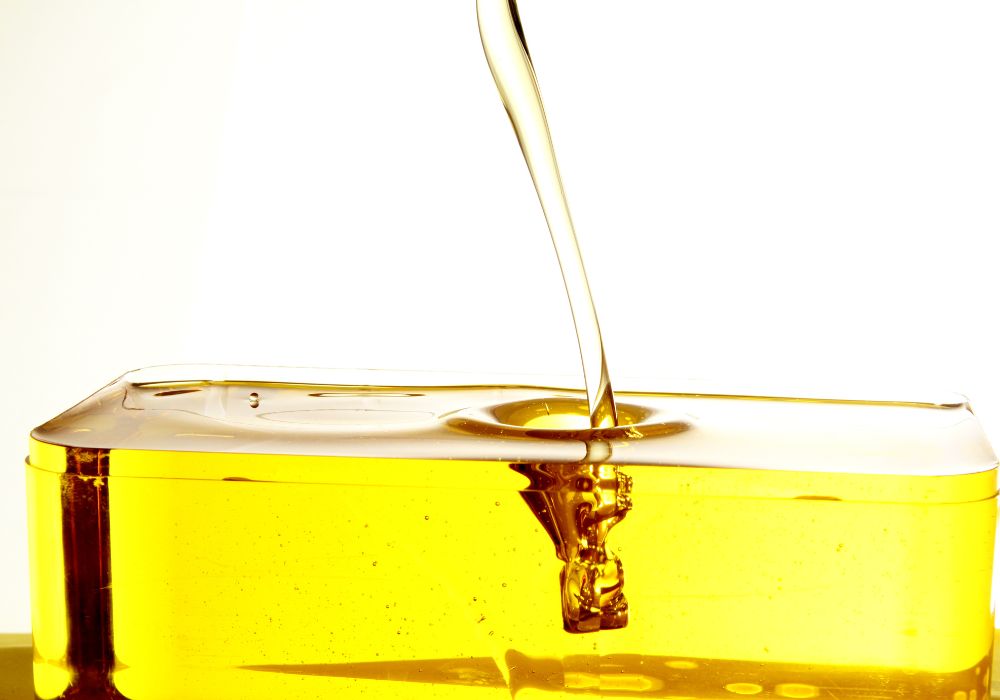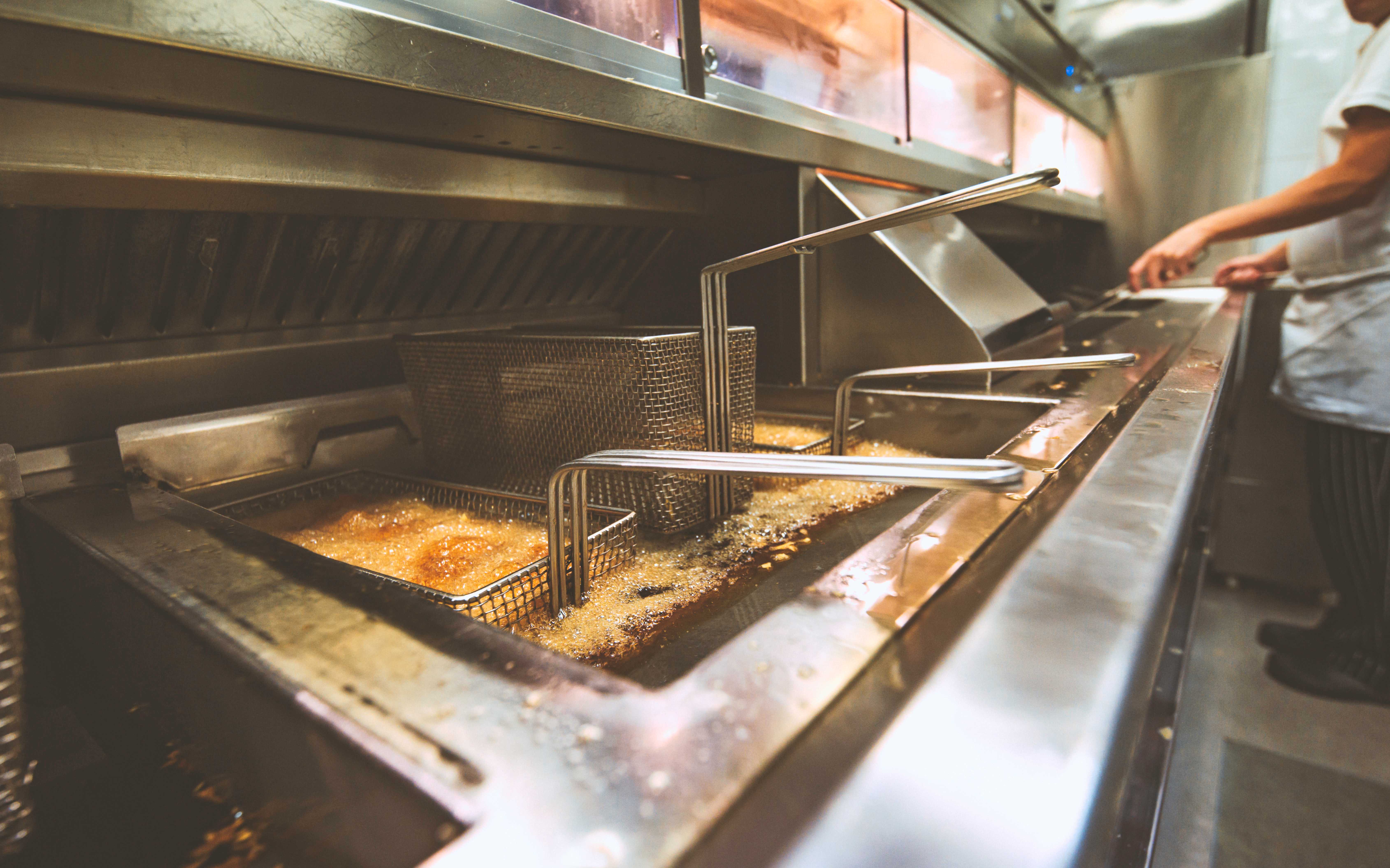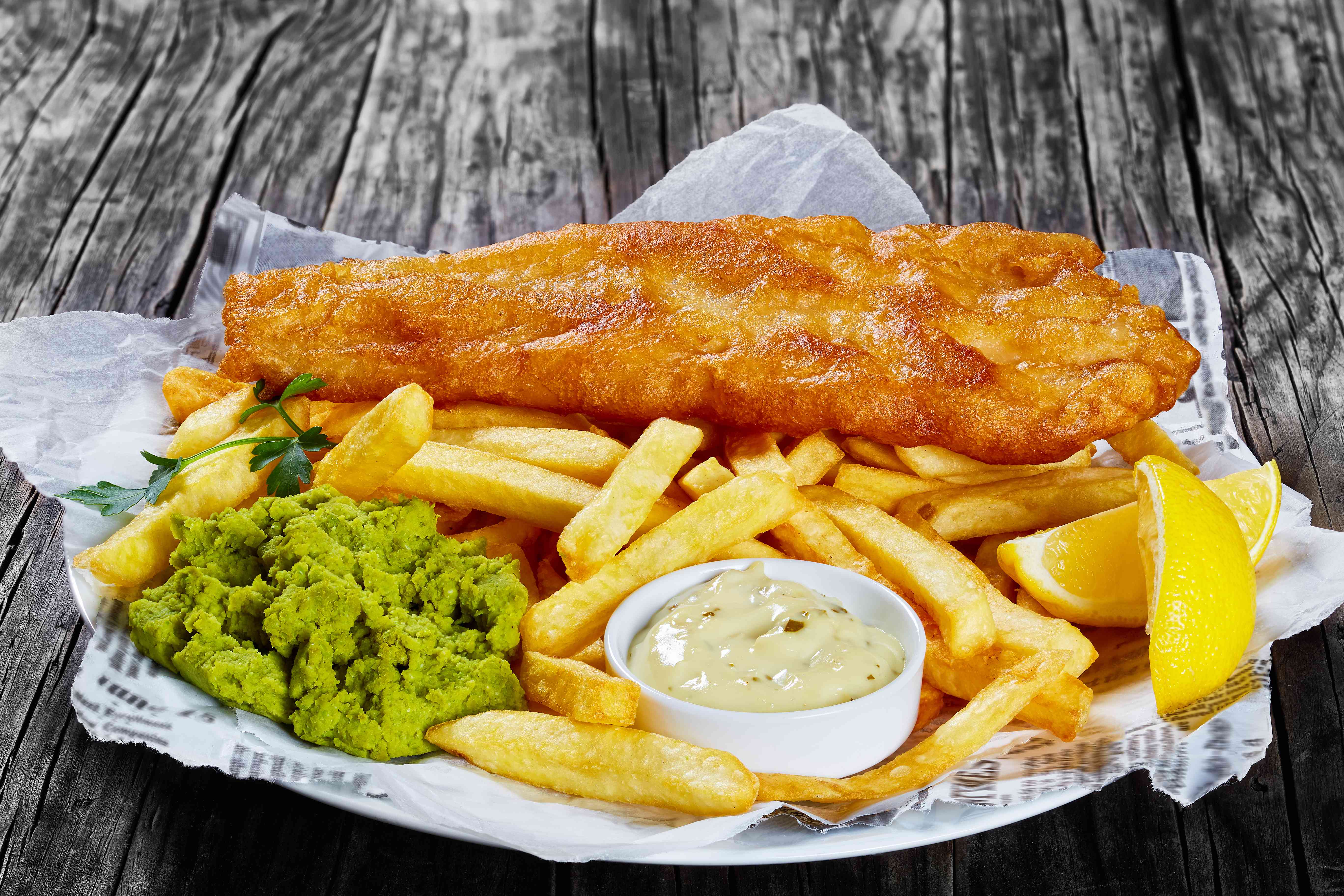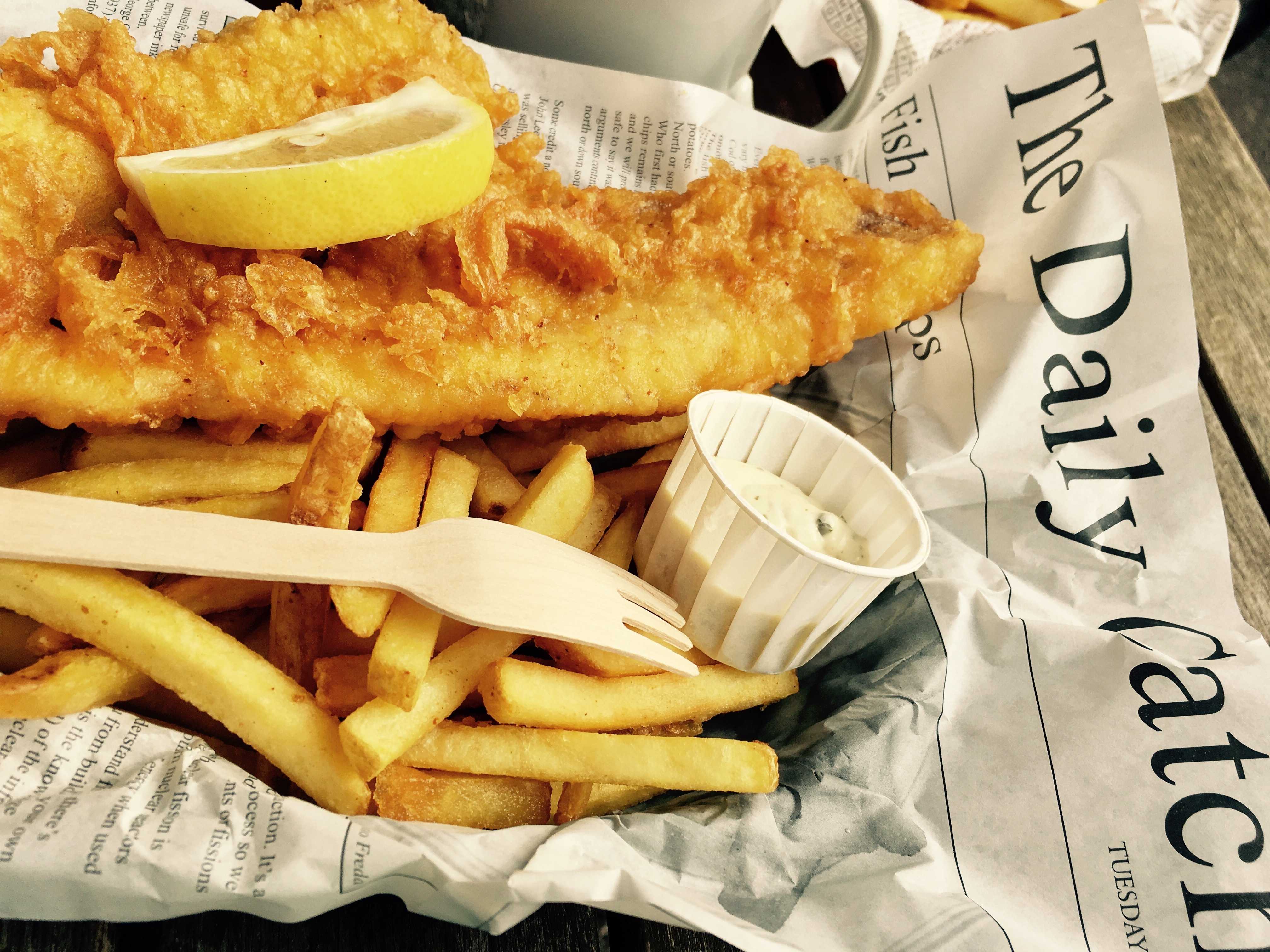After enjoying a delicious, deep-fried meal, you’re left with the question: What to do with excess oil after frying? Properly handling used cooking oil is essential for both environmental sustainability and safety, for both restaurants and home cooks. In this article, we will explore various options for managing what to do with frying oil after usage, including reusing it, determining its shelf life, recycling possibilities and safe disposal methods. Additionally, we’ll highlight what you should avoid doing with frying oil to prevent accidents and environmental harm.
The Food Safety Act of 1990
A significant element of environmental law that all food businesses in the United Kingdom must abide by is the Food Safety Act of 1990. The main objective of the Food Safety Act is to protect individuals from consuming food that might be harmful to their health. The Food Safety Act must be rigorously followed by every company that handles food, whether it is cooking, labelling, transporting, storing, or selling it.
According to these laws, it is crucial for your restaurant to have authorised containers for storing leftover cooking oil. It is advisable to arrange collection and transport services to help with the removal of significant quantities of spent cooking oil for processing and recycling. Businesses must abide by the Food Standards Agency’s guidelines on what to do with oil after frying. Remember, local authorities have the right to examine your property, and if they find that the Food Safety Act 1990’s rules are being broken, they have the authority to issue fines or even shut down enterprises – Ensure a paper trail system is in place.
Reusing Frying Oil
One of the primary considerations when it comes to used frying oil is whether it can be reused. The answer depends on several factors, including the type of oil used, the food fried, and the condition of the oil after frying. Here are some guidelines for reusing frying oil:
- Straining and filtering: Before reusing frying oil, strain it through a fine mesh sieve or cheesecloth to remove any food particles. Filtering the oil helps remove impurities, carbon and extends its usability.
- Storage: Store the strained oil in a clean, airtight container to prevent contamination. Ensure the container is not exposed to direct sunlight or excessive heat, as this can degrade the oil quality. Room temperature is advisable for unused and fridge storage for used.
- Number of uses: Generally, it is safe to reuse frying oil two to three times, depending on its condition. As you continue to reuse the oil, it may affect the flavour and quality of the fried food.
- Monitoring quality: Pay attention to signs of degradation, such as a rancid smell, off-colour appearance, or excessive foaming during frying. If any of these occur, it’s best to discard the oil.
Shelf Life of Used Frying Oil
Used frying oil has a limited shelf life due to factors like oxidation, heat exposure, and food particles. Although it is possible to extend the usability through filtering and proper storage, it is important to be aware of the oil’s condition. Here are some general guidelines for the shelf life of used frying oil and what to do with oil after frying:
- Type of oil: Different oils have varying stability levels. Vegetable oils, such as canola, soybean, or sunflower oil, typically last around three to five uses. However, oils with higher saturated fat content, like peanut or coconut oil, tend to have a longer shelf life. Sustainable palm oil also has a longer shelf life, as it is refined to very pure oil.
- Smoking point: Overheating oil during frying can degrade its quality more rapidly. Oils that reached their smoke point should not be reused. It’s best to use sustainable palm oil for this reason, as it has a very high smoke point and will not burn easily.
- Duration of use: If the oil has been used for an extended period, it is advisable to discard it, even if it appears fine. Prolonged frying leads to oil breakdown, resulting in reduced quality and potential health risks. In general, cooking oil shouldn’t be used more than three times.
- Rancidity: The development of a rancid smell, off flavours, or discolouration indicates that the oil has turned rancid and should be discarded immediately.
Recycling Frying Oil
What to do with cooking oil after frying? Recycling used frying oil is an environmentally responsible option that reduces waste and prevents pollution. Here are a few recycling possibilities:
- Local recycling programs: Check if your community or local recycling centres accept used cooking oil. Some municipalities provide drop-off locations where you can safely dispose of your oil, which will then be repurposed.
- Biodiesel production: In some areas, there may be private or municipal services that offer collection or pickup of used cooking oil. These services often recycle the oil into biofuel or other useful products. Check with your local council or search online for grease collection services operating in your area.
- Composting: If you have a home composting system, you can add small amounts of cooled cooking oil to your compost. However, use caution and avoid adding excessive amounts, as it may create an imbalance in the compost.
Disposing of Frying Oil
When recycling is not an option or the oil is no longer suitable for reuse, the question is what to do with oil after deep frying. Well, proper disposal is crucial to prevent environmental damage. Follow these recommendations for safe oil disposal:
- Allow cooling: After frying, allow the oil to cool completely before handling it. Hot oil can cause severe burns.
- Use absorbent materials: Absorbent materials like paper towels, newspaper, or disposable kitty litter can help solidify the oil. Pour the cooled oil onto these materials, allow it to solidify, and then seal them in a leak-proof bag or container.
- Garbage bin: Place the sealed container with the solidified oil in the regular garbage bin. Ensure the container is well-sealed to prevent leakage. Ensure the garbage bin is away from flammable items.
- Local regulations: Be aware of any local regulations regarding the disposal of cooking oil. Some municipalities may have specific guidelines or designated drop-off locations for used oil.
Disposal of Cooking Oil: Rules for Domestic Homes
It’s illegal to pour cooking oil down the drain in the UK. Disposing of cooking oil in this manner can cause significant damage to the sewer system and the environment. When poured down the drain, cooking oil can solidify and cause blockages in pipes, leading to costly repairs and potential sewage overflows. It can also contaminate water bodies, harming aquatic life and the ecosystem.
There are several ways to get rid of old cooking oil safely. However, you must first always wait for the oil to cool. Pour or transfer the oil into a container that can be sealed after it is cold and safe to handle. If the oil is the kind that solidifies, you may place it in the refrigerator or freezer until it does. The solid oil should then be removed and thrown in the trash. If not, put all of your oil in a container and bring it to the nearest recycling facility. It may be a good idea to verify the regulations at your nearby centre, however many now accept used cooking oil without question.
Disposal of Cooking Oil: Rules for Businesses
It is a legal requirement for businesses to handle waste cooking oil properly. Failure to do so can result in lofty fines and, in serious cases, the forced closure of their businesses, leading to prosecution or an enforced cessation of trading.
When businesses fail to dispose of their used oil safely it costs local councils thousands of pounds, blocking drains and causing environmental issues. Making sure that used cooking oil is recycled is the most ecologically responsible way to dispose of it.
To do this, your business needs to partner with a specialist that collects used cooking oil and either recycles it themselves or transports it to a facility that can. This chosen company that recycles spent cooking oil, will transport the oil to a facility where it will undergo the anaerobic digestion process. The breakdown of the cooking oil allows for its conversion into biogas, which may be used to power vehicles, heat water, and produce energy.
What Not to Do with Oil After Frying
To avoid accidents, environmental harm, and plumbing issues, here are some actions to avoid:
- Pouring down the drain: Never pour used cooking oil down the drain or toilet. Oil can solidify and cause clogs, leading to costly plumbing repairs.
- Mixing with other substances: Do not mix used cooking oil with other liquids, especially chemicals like bleach or detergents. This can create hazardous reactions or contaminate recycling efforts.
- Direct disposal in the yard or garden: Pouring used oil directly onto the ground can harm plants, contaminate the soil, and attract pests.
- Reusing contaminated oil: Avoid reusing frying oil that has been used to cook fish or strongly flavoured foods, as it can transfer unwanted flavours and compromise the taste of future dishes.
Other Fun Uses for Used Cooking Oil
Nothing more than an unpleasant waste is produced by your spent cooking oil. But if you correctly recycle it, it may become much more. As for what to do with cooking oil after frying, a couple of methods for doing this include composting and using a garbage container. Now that you are aware that recycling is the greatest approach to reusing wasted cooking oil, what specifically may they be used for? Let’s examine a few processes for turning leftover cooking oil into fuel alternatives, animal feed, and numerous household items and cleaning products.
Animal Feed
Leftover cooking oil is utilised as a feedstock for many kinds of animal and pet foods. Used cooking oil is used as animal feed for chickens and other livestock on an industrial scale since it provides a lot of calories and other nutrients when it is broken down and purified. Additionally, it can be added to pet food. In fact, there’s a strong possibility that the pet food you feed your dog or cat contains cooking oil to enhance flavour or keep their fur smooth and glossy.
Composting
Your spent cooking oil may be composted in tiny amounts depending on the type of oil. Because it is organic, vegetable oil is better suited for composting than other types of oil. But keep in mind that if you add too much at once, the process will be slowed down and a bad smell will be produced, luring pests like rats and other animals.
Soaps
You can also use the used cooking oil to make soap. The spent oil is a valuable component in the creation of several kinds of hand soaps, together with water and caustic soda flakes.
Looking for High-quality, Sustainable Palm Oil for Deep Frying?
Frymax supplies trans-fat-free, fully segregated certified sustainable palm oil to our clients in the restaurant and hospitality industry. With superior quality single sourced RSPO palm oil, we’re committed to helping you create a more sustainable, ethical, and healthier world. For more information don’t hesitate to get in contact with the helpful Frymax team.
Become a Frymax member today to gain access to exclusive content, expert frying advice and the chance to enter our fantastic competitions.






